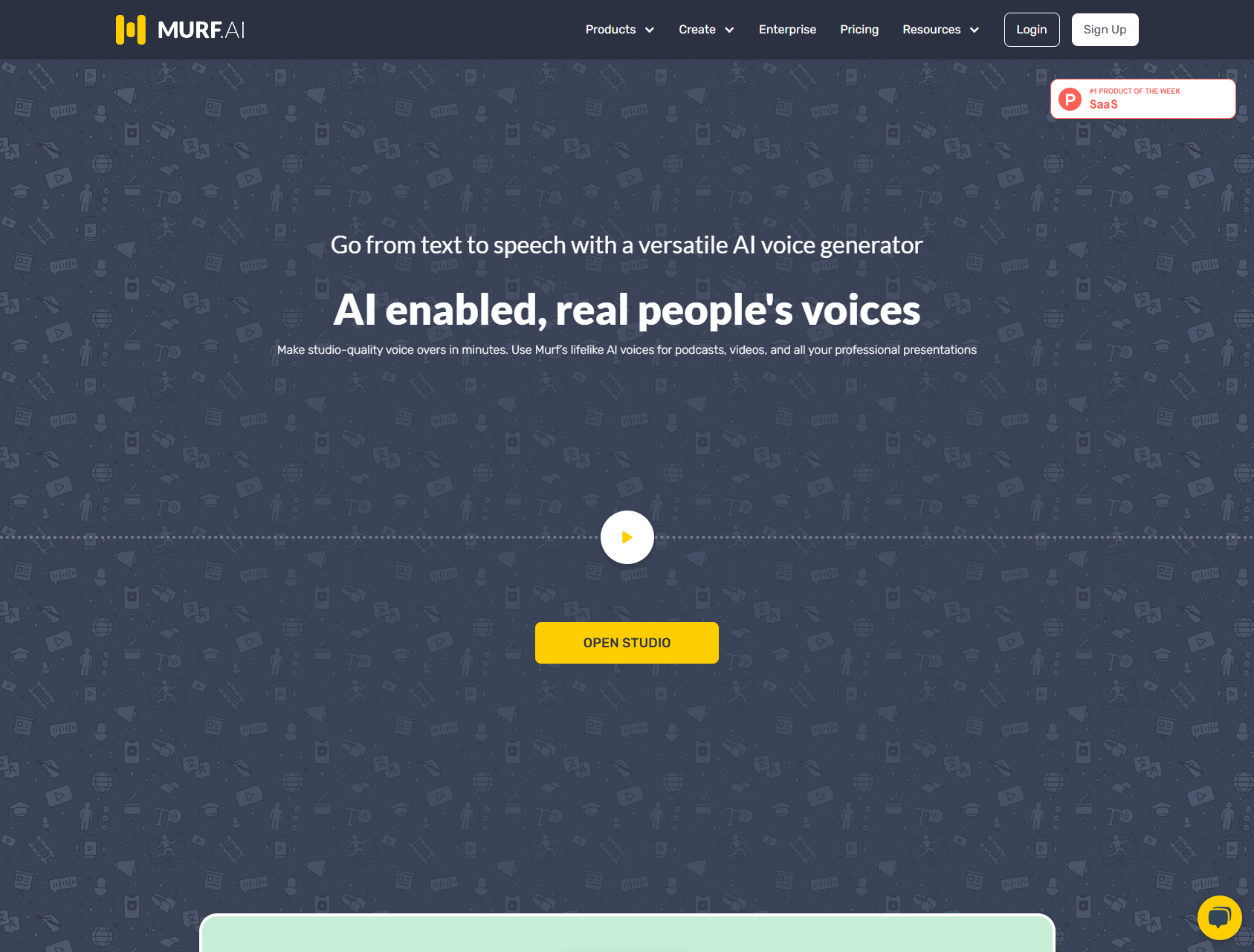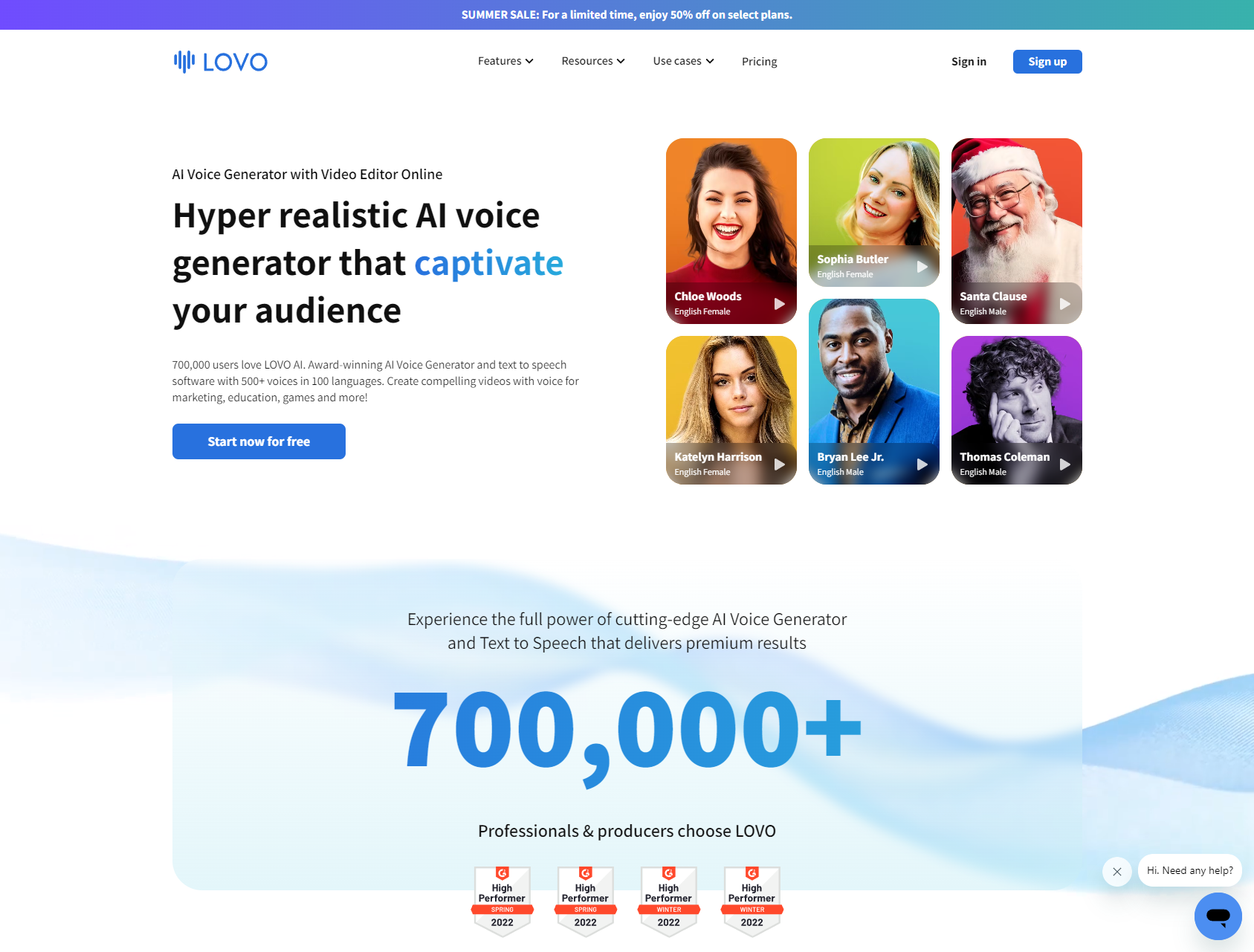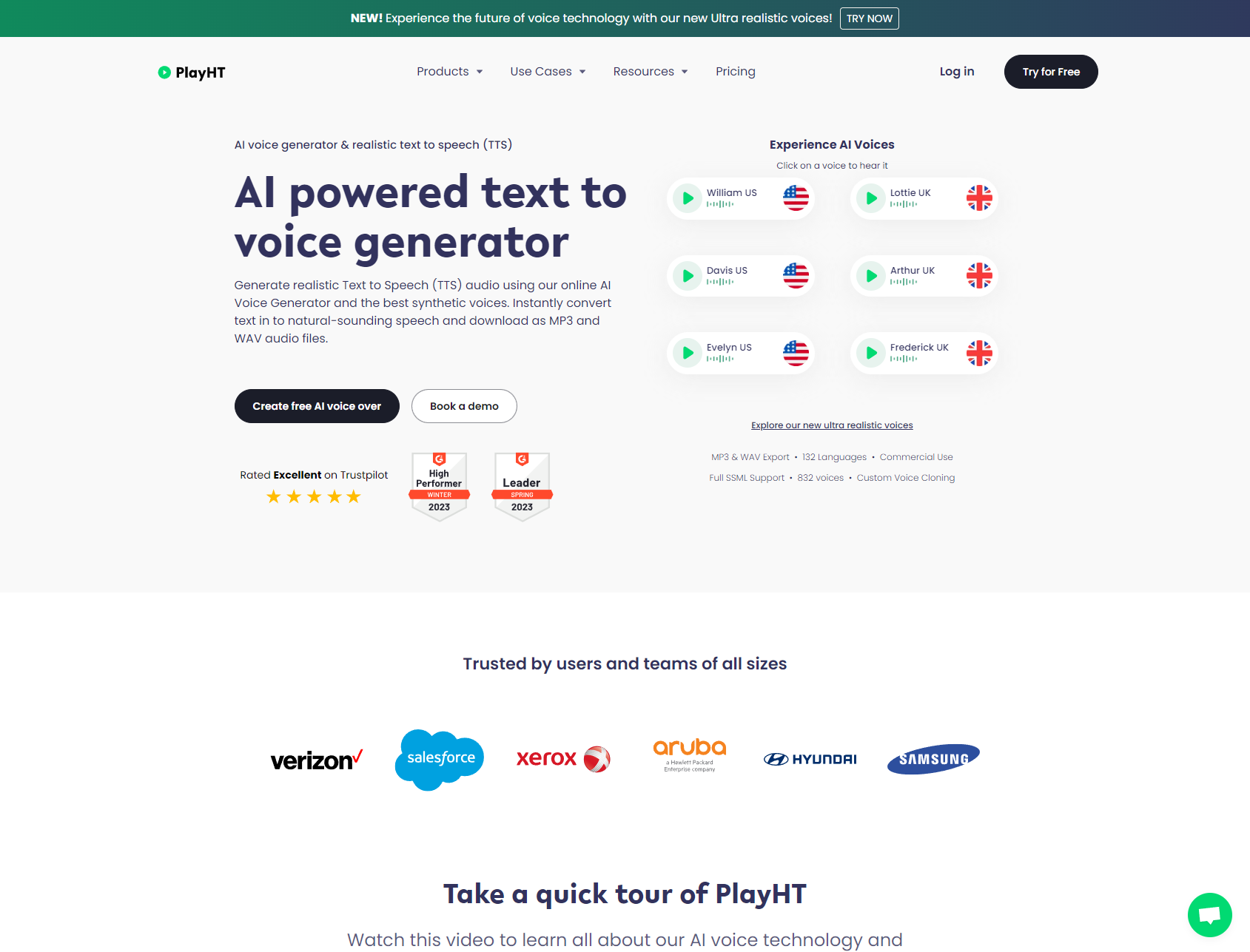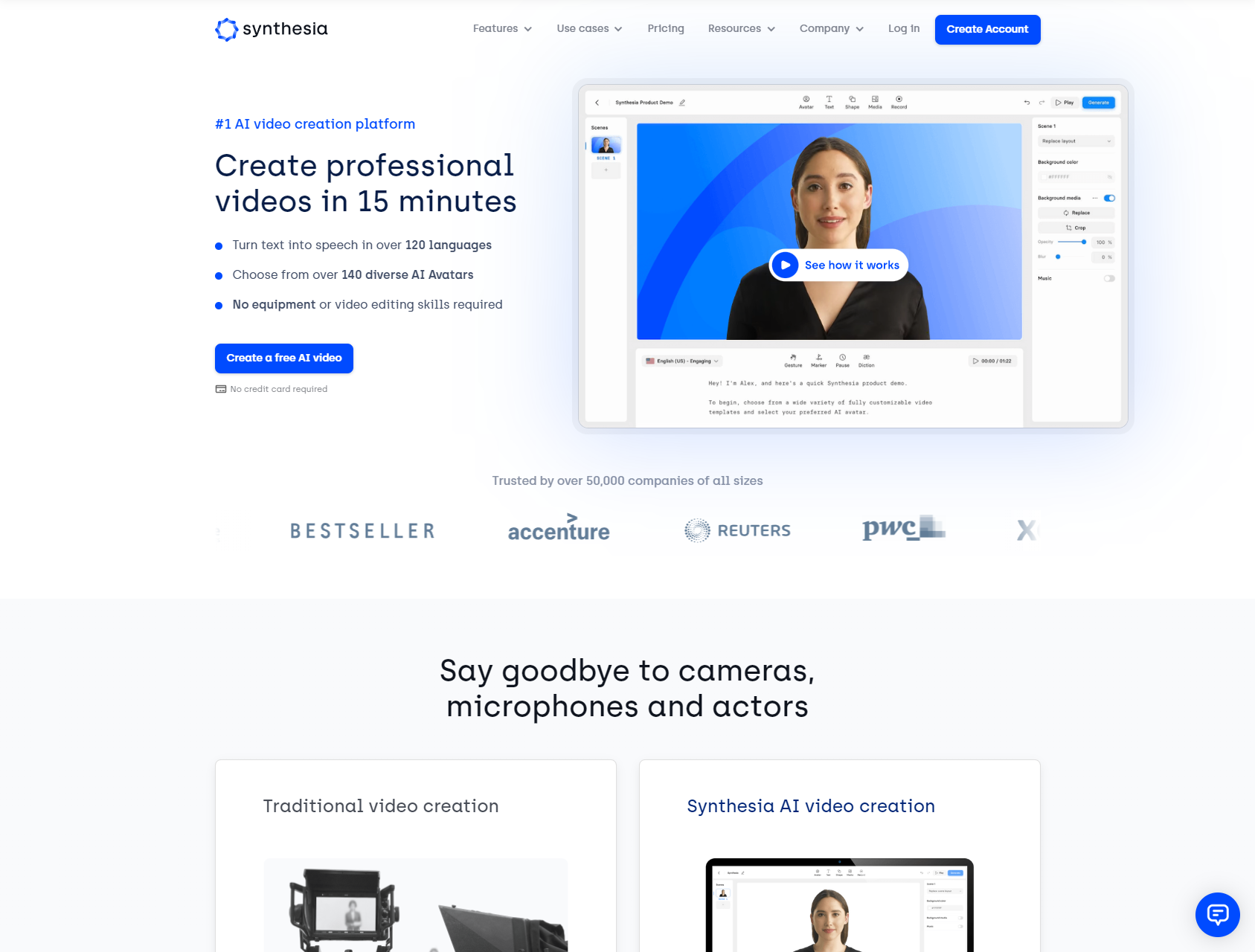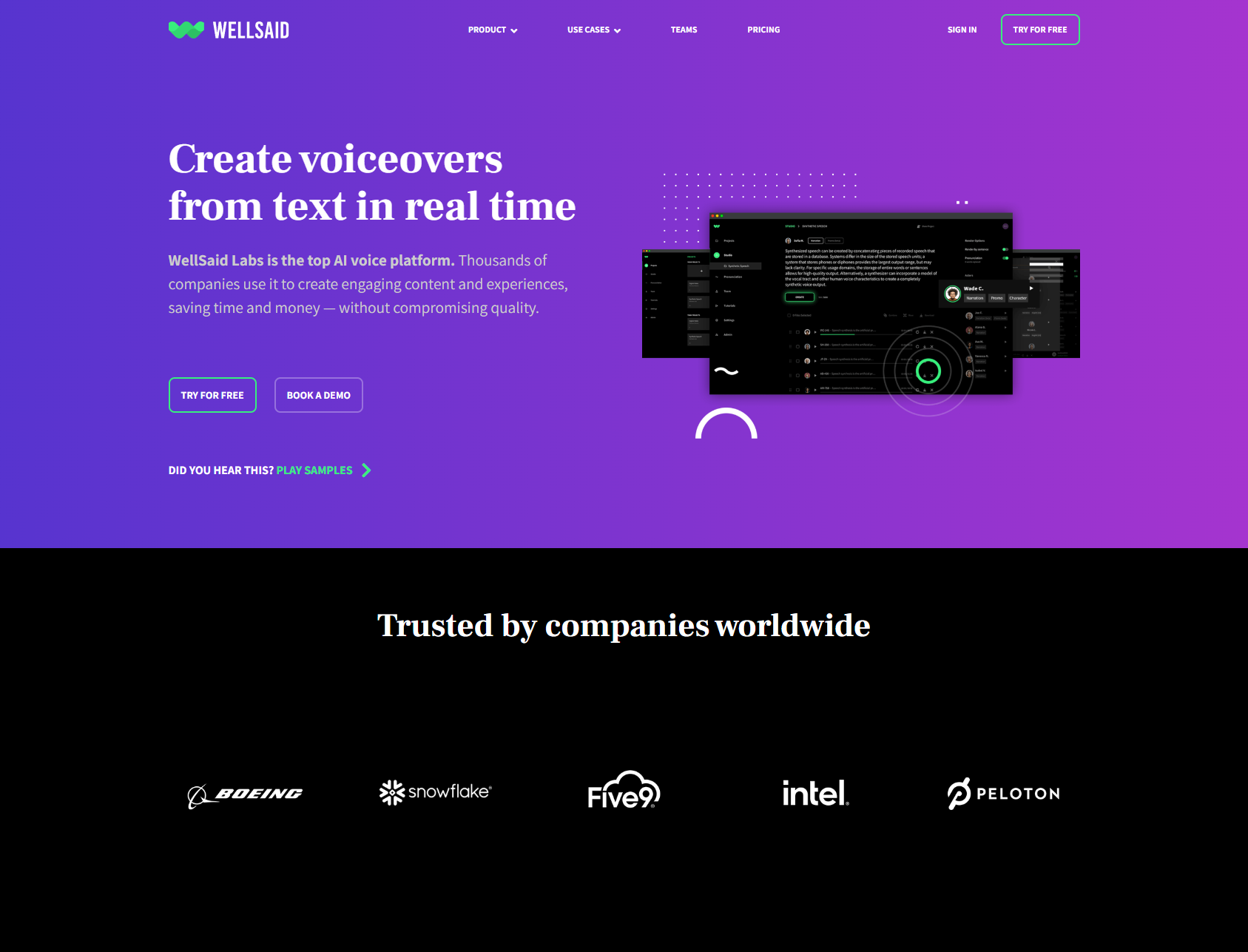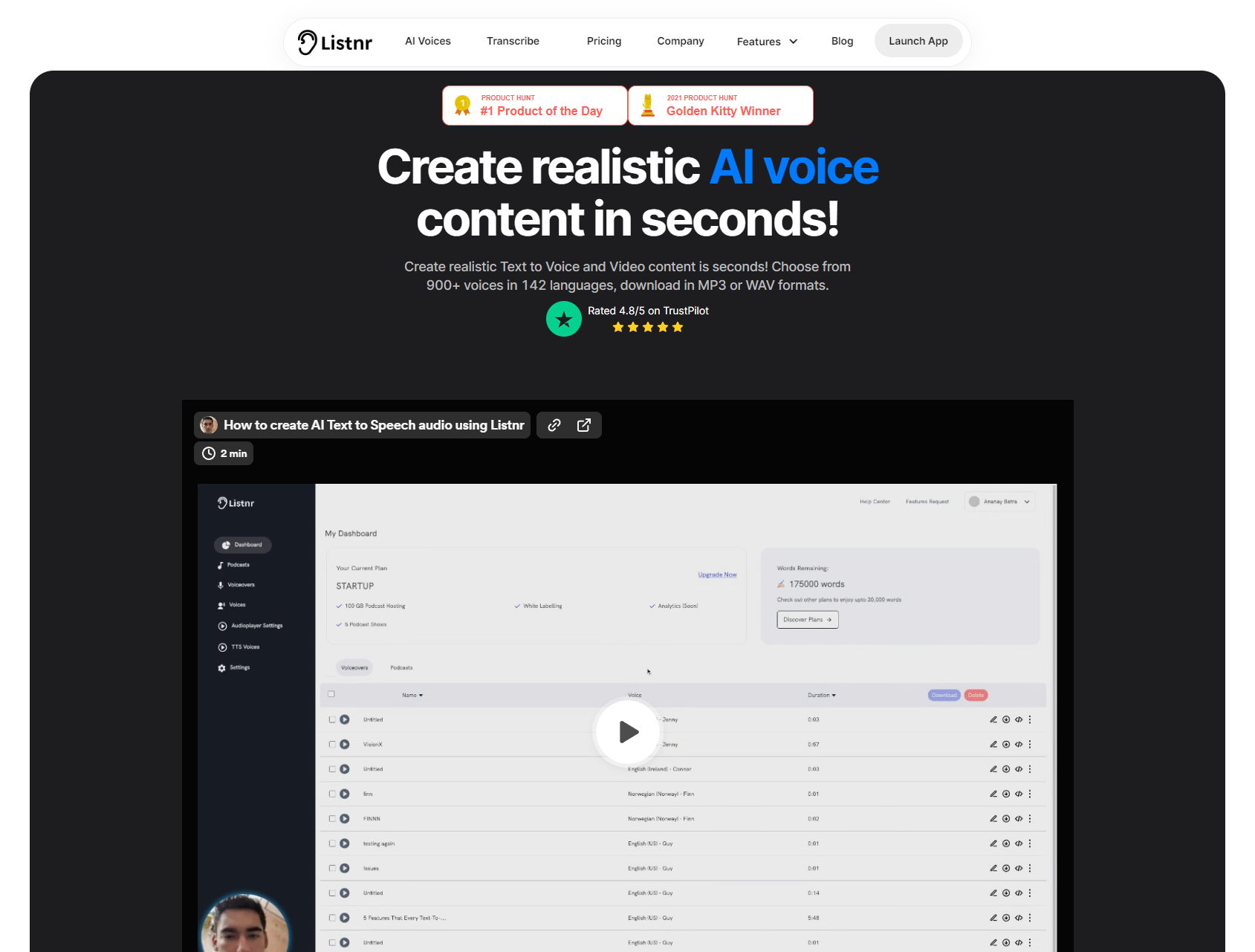AI voice generation platforms leverage machine learning to synthesize amazingly realistic human-sounding speech from text. This guide explores leading solutions enabling text-to-speech with human voice quality.
What is AI Voice Generation?
AI voice generators convert text into speech using advanced neural networks. The algorithms analyze real human vocal samples to model the unique qualities that comprise someone's voice like:
- Timbre
- Tonality
- Accents
- Inflections
- Pronunciations
The AI then generates new speech imitating those signature vocal elements. The synthesized voices sound nearly indistinguishable from real humans.
Key capabilities include:
- Cloning any voice with minimal sample data
- Text-to-speech with cloned or unique AI voices
- Emotive responsive speech
- Real-time voice synthesis integrations
- Custom branding voices and assistants
Uses range from video voiceover to personalized assistants, audiobooks, interactive characters, and more. As quality improves, AI aims to replicate and enhance human voices.
Top 6 AI Voice Generator Platforms
Murf.ai
Murf provides exceptional quality voice cloning and synthesis, replicating vocal signatures using minimal sample audio data.
Key features:
- Clones voices from just 5-10 minutes of audio
- Photorealistic voice cloning and text-to-speech
- Emotive responsive speech and intonation
- Voice avatars and AR applications
- API access for integration
Murf leads in crafting the most human-like natural voice cloning and generation technology.
Lovo.ai
Lovo.ai leverages advanced neural nets to clone voices and generate AI voices from just minutes of sample audio.
Key features:
- Voice cloning from 5-10 minutes of audio
- Custom voice assistant creation
- Text-to-speech with cloned or AI voices
- Voice avatars and AR applications
- API access for integrations
For premium quality voice cloning and generation, Lovo.ai delivers best-in-class realism.
Play.ht
Play.ht provides proprietary AI to clone voices or generate human-quality voices using just voice samples.
Key features:
- Voice cloning from minutes of audio
- Natural voice synthesis from text
- SDKs for creative applications
- Emotive responsive speech
- Voice skins and flavors
Play.ht excels at cloning voices from limited data for authentic text-to-speech.
Synthesia
Synthesia offers advanced voice cloning and synthesis technology powered by AI, with applications for content creators.
Key features:
- Voice cloning from audio samples
- Text-to-speech with cloned or unique voices
- Voice skins and flavors
- Emotive responsive delivery
- SDKs for apps and software
Synthesia specializes in realistic AI voices tailored for creative industries and productions.
WellSaid Labs
WellSaid crafts AI-generated speech solutions specialized for voice assistants, interactive characters, andelevated vocal realism.
Key features:
- AI vocal avatars and assistants
- Custom voice cloning capabilities
- Conversational voice AI
- Emotive responsive speech
- Corporate enterprise solutions
WellSaid caters to growing demand for AI voices powering customizable virtual assistants and characters.
Listnr
Listnr provides enterprise-grade AI voice generation for assistants, automation, and other custom voice needs.
Key features:
- Voice cloning capabilities
- Natural text-to-speech
- Custom voice building platform
- Emotive responsive voices
- APIs for easy integration
- Corporate solutions
Listnr leads in enabling businesses to tailor AI voices for personalized applications and services.
Evaluating AI Voice Generation Platforms
When evaluating providers, prioritize:
- Naturalness – Does speech sound convincingly human? Listen for artifacts.
- Accuracy – Does it accurately mimic target vocal signatures and accents?
- Responsiveness – Can it synthesize speech in real time? Is latency noticeable?
- Emotion – Does the platform enable emotive expressive delivery?
- Data efficiency – Does it produce quality results from limited sample data?
- Customization – Can you tailor pitch, speed, tones etc?
- Integration – Does it provide SDKs for seamless voice integration?
- Use cases – Will it accommodate your application and audience size needs?
Favor flexible solutions with strong audio quality that improve constantly as AI research advances.
Comparing Leading AI Voice Platforms
| Platform | Audio Quality | Data Needed | Emotion | Latency | Customization | Pricing | Use Cases |
|---|---|---|---|---|---|---|---|
| Murf | Photorealistic | 5-10 minutes | Advanced | Real-time capable | Voice skins | Enterprise | Assistants, characters, cloning |
| Lovo | Excellent | 5-10 minutes | Good | Real-time capable | Multiple voices | Enterprise | Cloning, assistants, audio |
| Play.ht | Excellent | 5-30 minutes | Good | Near real-time | Voice skins | Enterprise | Cloning, games, audio |
| Synthesia | Excellent | 10-30 minutes | Good | Capable | Voice skins | Enterprise | Content creators, audio |
| Listnr | Natural | 10-30+ minutes | Decent | Capable | Highly customizable | Enterprise | Custom assistants, audio |
| WellSaid | Leading-edge | 30-60+ minutes | Advanced | Real-time capable | Conversational AI | Enterprise | Assistants, audio, characters |
Comparing Voice Cloning vs. AI Voices
Voice Cloning
- Mimics a real person's vocal signature
- Requires sample data of target voice
- Identifiable to original speaker
- Legal and ethical issues to consider
AI Voices
- Generated voice from scratch
- Requires no real person sample data
- Unique synthesized identity
- Avoids likeness issues
Use Cases
Cloning – Digital assistants, voice augmentation, dubbing, impersonation
AI Voices – Unique assistants, vocal instruments, accessibility tools, protecting anonymity
Evaluate whether mimicking a real vocal identity or crafting a new AI voice better suits your needs.
Audio Data Required for AI Voices
The amount of data needed depends on the platform:
- 5-10 minutes – Provides decent voice cloning and sampling for basic AI voices. Enables short voiceovers.
- 15-30 minutes – Allows rich voice cloning with most tonal qualities intact. AI voices gain more range.
- 60+ minutes – Ideal for cloning with maximum nuance preserved. AI voices sound hyper-realistic.
Ideally provide diverse samples showing tonal range. Video interviews often work well, capturing casual speech patterns.
Customizing and Controlling AI Voices
Look for tuning controls like:
- Pitch – Adjusting vibration frequency of vocal cords
- Speed – Controlling speaking pace and rhythm
- Emphasis – Stress on words through pitch and volume
- Tones – Targeting deeper or brighter timber
- Breathing – Adding natural sounding inhales and exhales
- Mouth sounds – Clicks, smacks, and lip noises that sound human
- Expressiveness – Choosing emotional sentiment from joyous to somber
These customizations enable crafting unique voices tailored to your needs.
Ethical Considerations for AI Voices
- Obtain consent before cloning recognizable voices.
- Clarify ownership rights upfront. Some platforms claim partial IP rights.
- Anonymize personal data from voice samples.
- Disclose when synthesized speech is used publicly.
- Consider biases that could be reinforced by representation choices in AI voices.
- Avoid harmful or unethical content being voiced through unsafeguards.
Ensure respectful, consensual usage as synthetic media advances.
Pricing for AI Voice Solutions
Pricing varies based on:
- One-time setup fees for cloning and custom voice building
- Usage charges for generated speech (per word, per min, etc)
- License terms dictating allowed applications
- Quality level – entry, prosumer, enterprise
- Support – self-service, concierge, customization
- Access – Pay-as-you-go, subscriptions, licenses
Conclusion
Leading solutions enable unprecedented voice realism using limited data thanks to AI research progress. As quality improves, consider responsible voice cloning where beneficial, while crafting unique AI voices that push creative frontiers. Evaluate use cases, ethics, and licensing carefully. But embrace the new forms of personalized communication unlocked by artificial intelligence voices.
FAQs
Can you copyright an AI-generated voice?
Likely not in isolation. But unique voices crafted for commercial applications may warrant protection and trademarks. Proprietary model training likely provides some inherent rights.
What legal issues exist around voice cloning?
Consent and disclosure are paramount when cloning recognizable voices. Additional complexities arise regarding likeness usage and ownership. Further legal precedents and protections need developing.
Can AI mimic voices perfectly?
Today's solutions come remarkably close with 5-10 minutes of data. But there are still subtle limitations around capturing highly nuanced vocal inflections, emotions, and contextual deliveries. Expect rapid improvements.
What's better: AI voice or text to speech?
AI voices provide a much more natural human-like sound. But text-to-speech scales easier for long content without needing lots of sample data. A hybrid approach works well.
Can AI voices replace voice actors?
For assistants and one-off productions needing affordability, AI voices fill needs. But for emotional storytelling and blockbuster video games, the artistry of human vocal performances remains unmatched. The two can complement each other.
How close are we to real-time speech cloning?
Some solutions already enable live cloning by processing small voice segments. Streaming full conversations in real-time using limited data remains complex. But technology is rapidly reducing latency.










